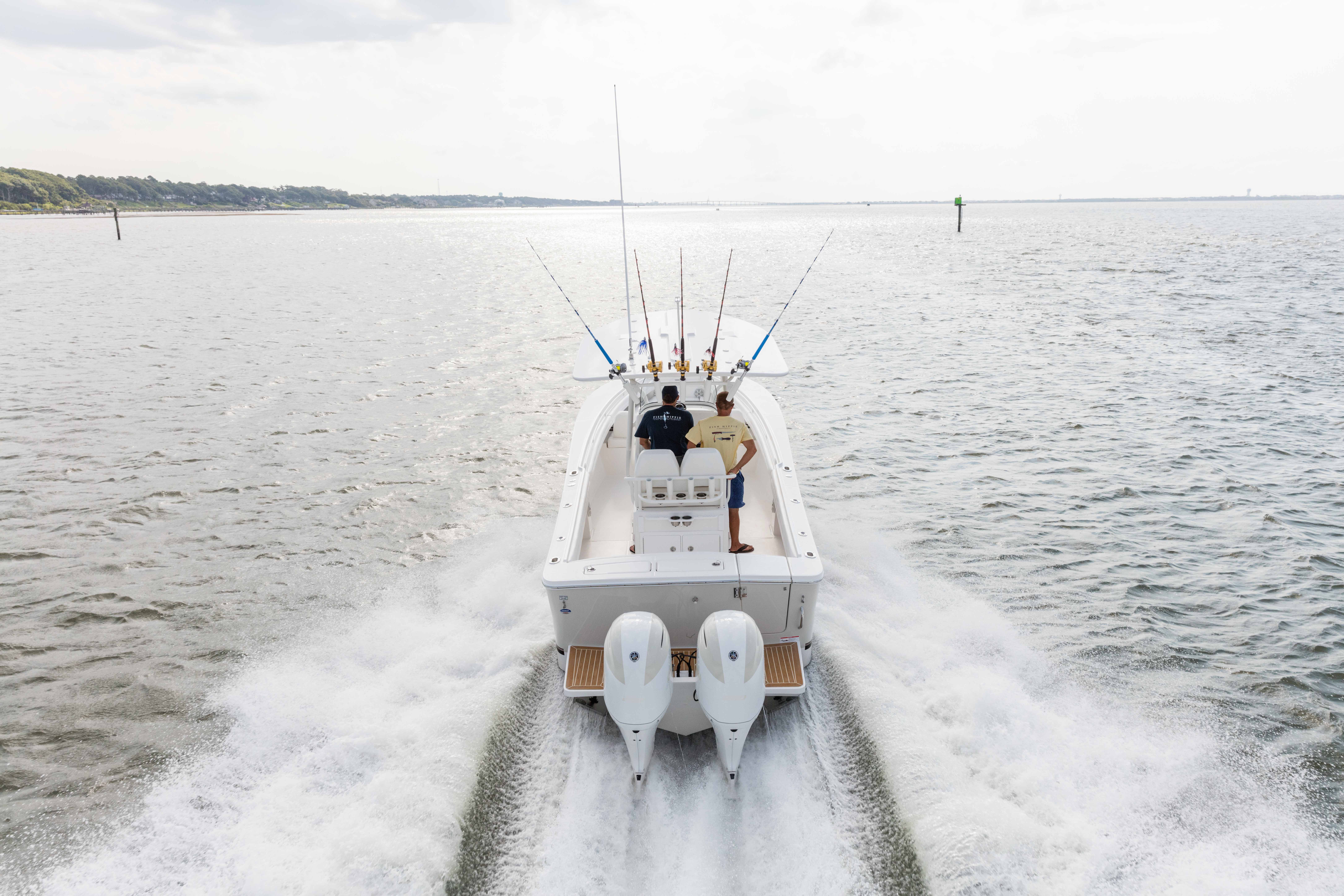Charter Boat Captains, Recreational Boating Industry Experts Speak Out Against NOAA Vessel Speed Rule
As NOAA’s vessel speed rule is considered by the Office of Management and Budget, the recreational boating industry continues to advocate for the withdrawal of the rule in favor of the advanced marine technologies available today.
The rule, which would require small recreational boats to travel at speeds of 10 knots along much of the Atlantic coast for up to seven months of the year, is ill-conceived, dangerous to boaters, economically disastrous, and ineffective at achieving its goal of protecting the North Atlantic right whale.
Since the rule was proposed nearly two years ago, the recreational boating and fishing industry has worked tirelessly to alert NOAA to the flaws in the rule and propose a technology-based approach to protecting marine mammals without putting boater safety at risk and devastating coastal economies.
Among other actions:
-
Thousands of comments opposing the rule were submitted to NOAA, including comments by NMMA
-
Recreational boating industry representatives, include NMMA President and CEO Frank Hugelmeyer, testified before Congress in opposition of the rule and in support of technology that already exists to better protect marine mammals
-
NMMA hosted Assistant Administrator for NOAA Fisheries Janet Coit at the Discover Boating Miami International Boat Show to show her and the NOAA staff the technologies that exist today
-
NMMA and its industry partners hosted a technology showcase on Capitol Hill to demonstrate existing vessel strike mitigation technologies for members of Congress
-
NMMA sent a letter to NOAA opposing the rule and asking for the docket to be reopened, and President and CEO Frank Hugelmeyer met with OMB to express the industry’s opposition
Unfortunately, NOAA failed to consider the recreational boating industry’s concerns and proposed solutions and continues to move forward with the ill-conceived rule.
As the proposal moves through the final stage of the federal rulemaking process, charter boat captains and boating experts are continuing to make their voices heard in the media.
In a letter to the editor in The Washington Post on May 30, Callie Hoyt, NMMA vice president of government relations, writes:
“The May 11 Climate Lab analysis, ‘Bishop vanished. His species can still be saved.’ omits the critical role technology can play in protecting the endangered North Atlantic right whale population. Boaters are lovers of marine life who want to see our saltwater and freshwater life flourish. We also want to ensure boaters remain safe on the water, and we want local businesses that depend on boating to continue to thrive. That is why the recreational boating and fishing industries have invested so heavily in technological advancements that protect marine life, boater safety and coastal economies.”
In an opinion piece published in The Carolina Journal, North Carolina charter boat captain Dave Tilley illuminated the serious safety concerns posed by the rule, writing “Even considering all of the problems this rule would pose for businesses, my biggest concern is that it would make boating less safe. Most of the small boats that would be impacted by this rule are not designed to operate at such low speeds, particularly during high winds and choppy waters. Without the necessary flexibility that boaters need to navigate rough conditions, their boats are at significant risk of capsizing — particularly worrisome given that many of these boats are family-owned.”
Speaking to USA Today, NMMA President and CEO Frank Hugelmeyer said the rule would be an “economic catastrophe” for coastal communities and explained that "You don't have to do a blanket approach across the entire Atlantic to protect this species. Technology is the answer to this problem."
South Carolina Boating and Fishing Alliance CEO Gettys Brannon explained the ineffectiveness of the rule to WCSC TV, saying “When you have a better chance of being struck by lightning than hitting one of the whales, in our opinion this rule is an incredible bureaucratic overreach.”
In a letter to the editors of The Falmouth Enterprise, Massachusetts Marine Trades Association executive director Randall Lyons wrote about the economic impacts of the rule: “The expanded vessel speed rule would be devastating for Massachusetts’ economy as a whole—not just a select few charter boat and ferry companies. This rule would put more than 17,000 jobs and 1,000 businesses in Massachusetts at risk—charter boat and ferry businesses, yes, but also hotels, fisheries, restaurants, bait and tackle shops, marinas and any business connected to the coastal tourism industry.”
And in an article written in the Asbury Park Press, New Jersey charter boat captain Fred Gamboa and director of government affairs and sustainability for Viking Yachts John Depersenaire encouraged NOAA to go back to the drawing board and work with the industry to find a more effective, technology-based plan for protecting the right whale: "As it is, they're basing it all on one tool — vessel speed — and it doesn't acknowledge all the different vessel capabilities," said Depersenaire.
The recreational boating and fishing community needs the voices of everyone impacted by this rule to speak out against it. Protect boater safety, coastal communities, and marine mammals by writing to Members of Congress here.





